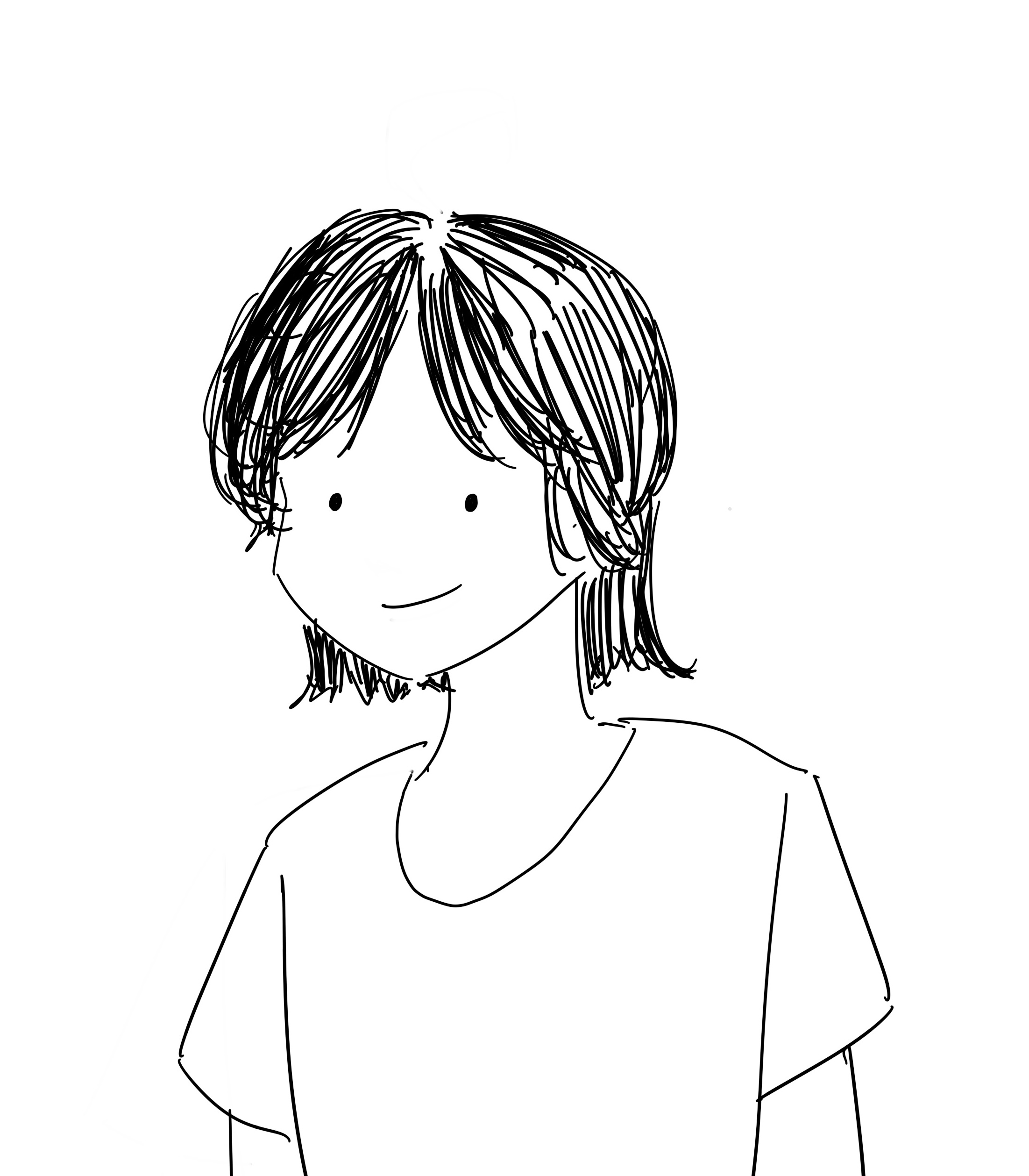What I Learned Studying Classical Music in Italy
Surrounded by other perfectionist music students, I gained new perspectives on what it means to be a musician.
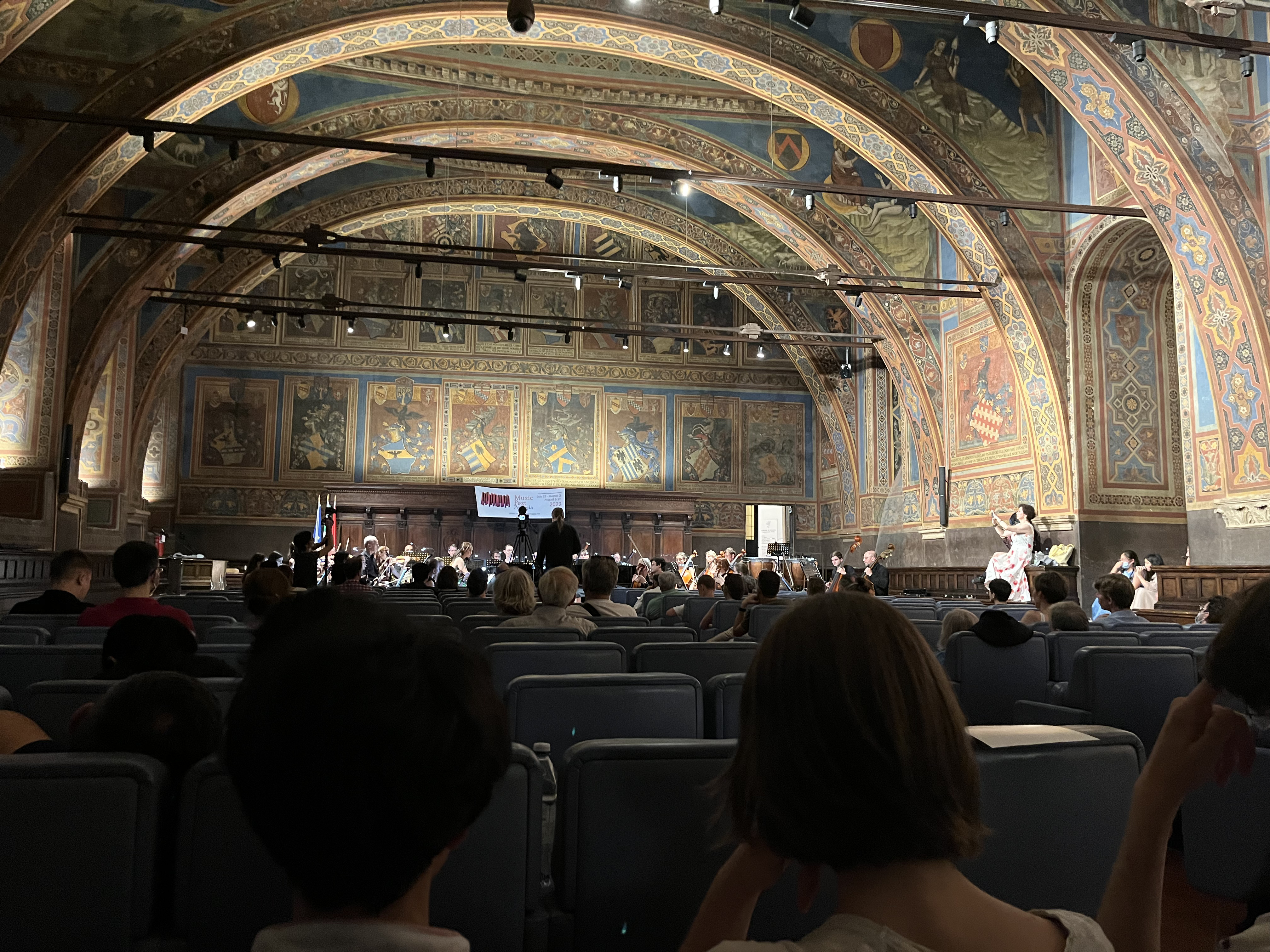
Student and faculty concerts were held in Palazzo dei Priori.
The summer after my junior year of high school, I participated in Music Fest Perugia, a two-week classical music festival full of student concerto performances, masterclasses, and free evening concerts.
It was July of ‘22. I flew there with my piano teacher and her son who was in college. When we finally landed in Italy, we took a long bus ride through winding roads and blossoming farms to Perugia, a small Italian town where street markets sat every weekend selling art and jewelry, teenagers partied in bars until 1 A.M., and the summer heat sweltered like boiling water.
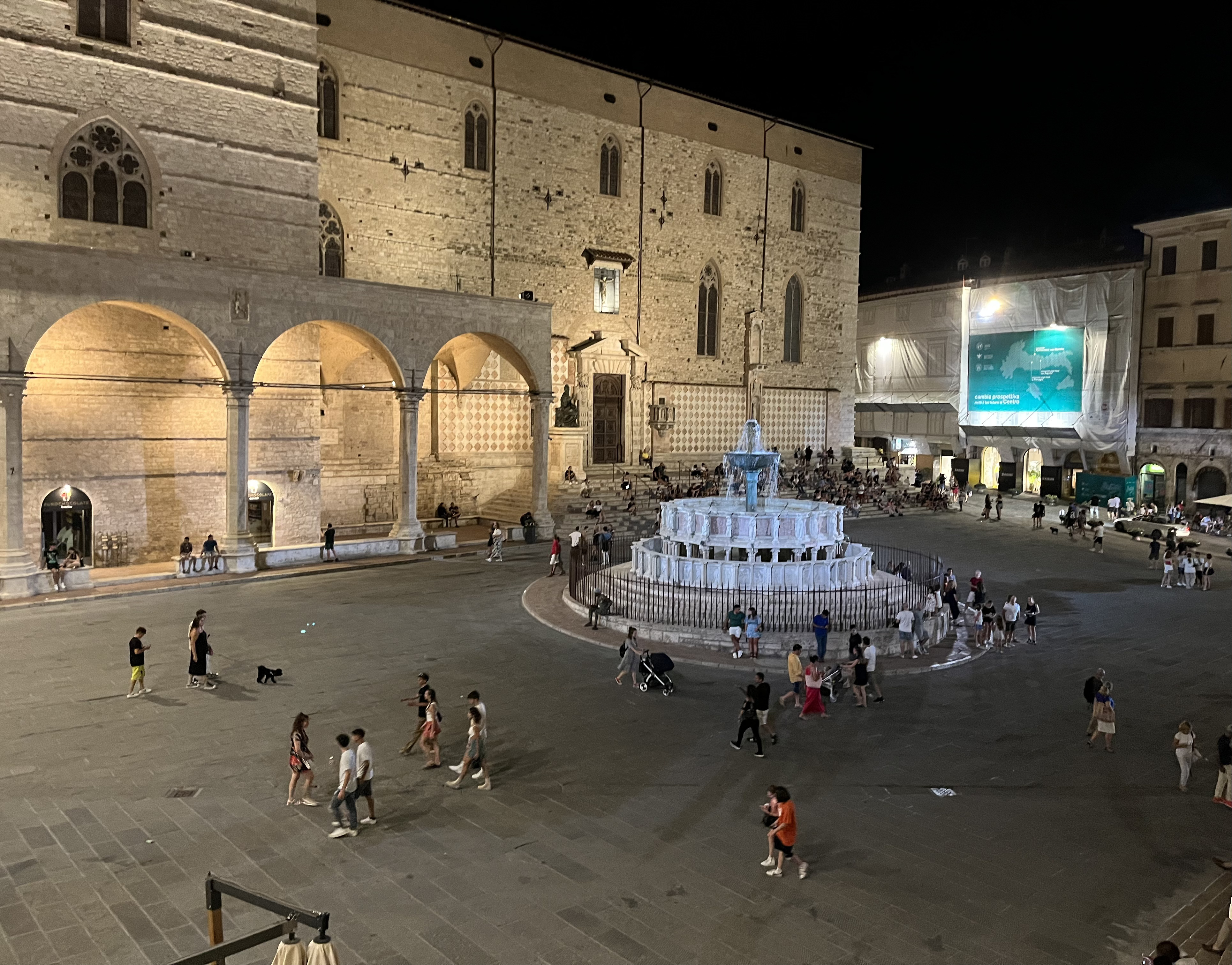
The bustling night life of Perugia.
That first night, everyone buzzed with excitement. Most of the participants were Asian, like me, and many of them had their mom with them. It was oddly reassuring to see the strict Chinese moms nag and worry, providing a sense of life back home in this unfamiliar city.
After touring around the buildings that Music Fest Perugia would use, my teacher treated her students and me to a pasta-pizza dinner and gelato for dessert (there were 3 gelato stores on the same street!), and we headed back to the hotel to get situated. Everyone was huddled in the lobby, nervously pacing and demanding answers about their lesson times and practice room privileges. When we finally got answers, it wasn't what we expected.
What shocked most of us was the casualness of the whole program. Gathered were child prodigies, master music professors, conservatory and university students from across the world, and yet we all crowded around schedules that were janky Google Sheets printed and taped on a whiteboard in the hotel lobby. Practice rooms were preschool classrooms, each equipped with an upright piano, some of them with jammed keys.
And yet, I loved the casualness. It made the festival experience richer, as if music and the messiness of life could not be separated. I always got this sense, during my weekly piano lessons back home, that the two were separate: inside the lesson room, nothing mattered except your instrument; outside the lesson room, a million other things demanded my attention. But here, you battled with other students for an available practice room, cringed when a random audience member started watching an Instagram reel at full volume during a rehearsal, and met local stray cats while scales drifted through the air. You trekked through the Rocca Paolina and hiked up crooked cobble stairs to reach the concert hall, heard piano trills and violin runs echoing through the hallways of the hotel, and sighed in frustration when the practice rooms suddenly close due to police inspection and everyone’s freaking out about their upcoming concerts.
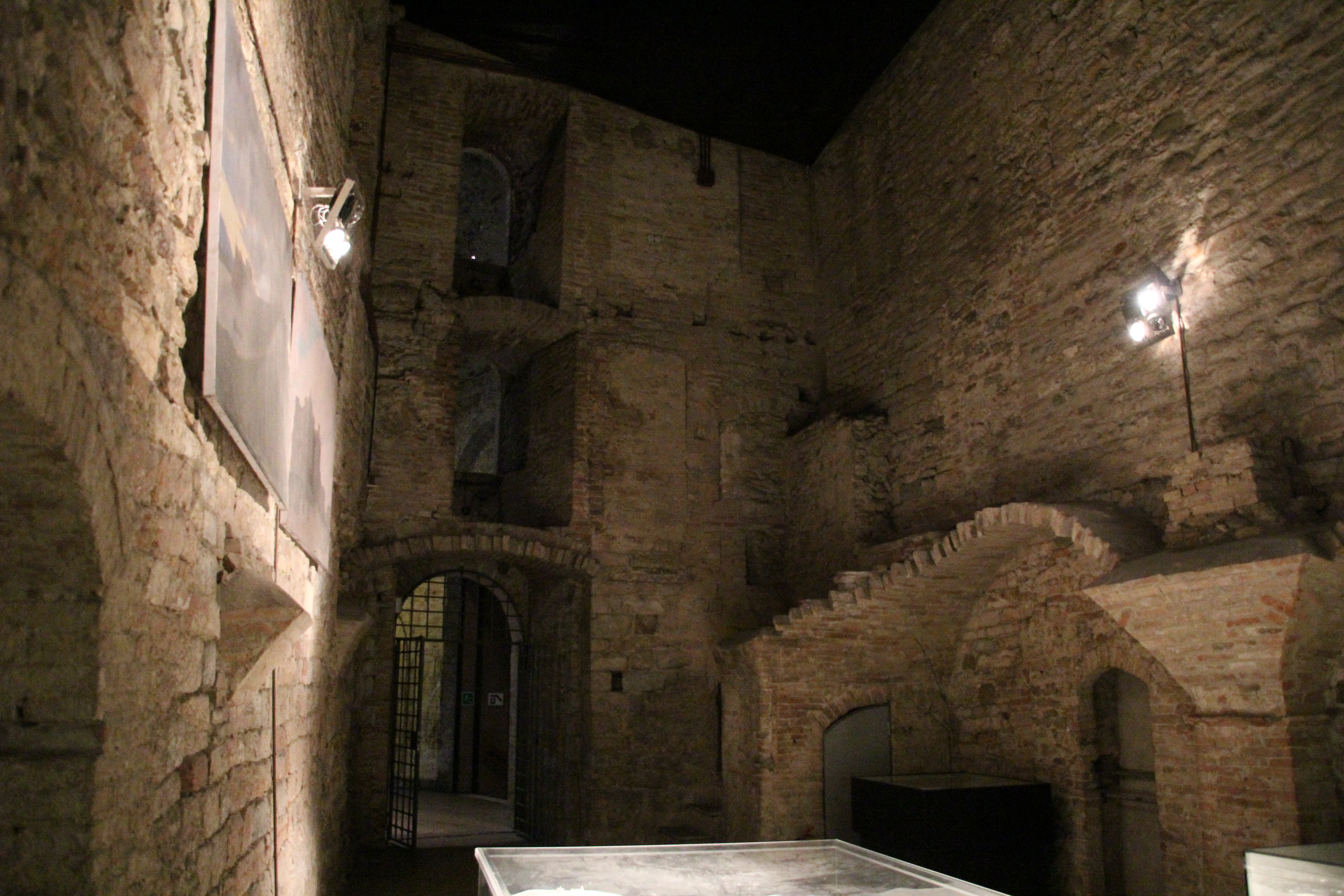
Inside one of the rooms in the Rocca Paolina, an "underground city" from the 14th century.
One night, we attended one of the evening concerts as usual. I went to as many as I could, because they were rare opportunities to hear other skilled musicians play live, something I couldn’t get every day in my quiet suburban hometown. My teacher, Ms. Carol, always told us to listen to as many recordings as we could, to get a better sense of what separates the “good” and the “great” (in classical music standards).
The one performance I remember the most was an electrifying performance of Tchaikovsky’s Piano Concerto in B-flat Major by a Japanese woman in her twenties. Everyone could feel that her energy was different from that of the other performers.
Listen to Tchaikovsky Piano Concerto No. 1. It's a life-changing experience; you won't regret it.
Other performers were good, getting through their performances sounding well polished, but always little nervous or a little calculated. Their playing was dull in comparison to her Tchaikovsky, which breathed like a living creature, built a story that rose to a climax and finished with an explosive bang! At the sound of her last chord, the audience erupted with applause and everyone shot up to their feet. This applause was different from the typical hearty yet polite applause that occurred after most performances. This was a fully deserved monstrous storm of praise.
I thought a lot about that performance after the festival ended. What made it so good? Technique, dynamics, tempo, musicality—all these vocabulary terms fell short, unable to capture what I heard and felt that night.
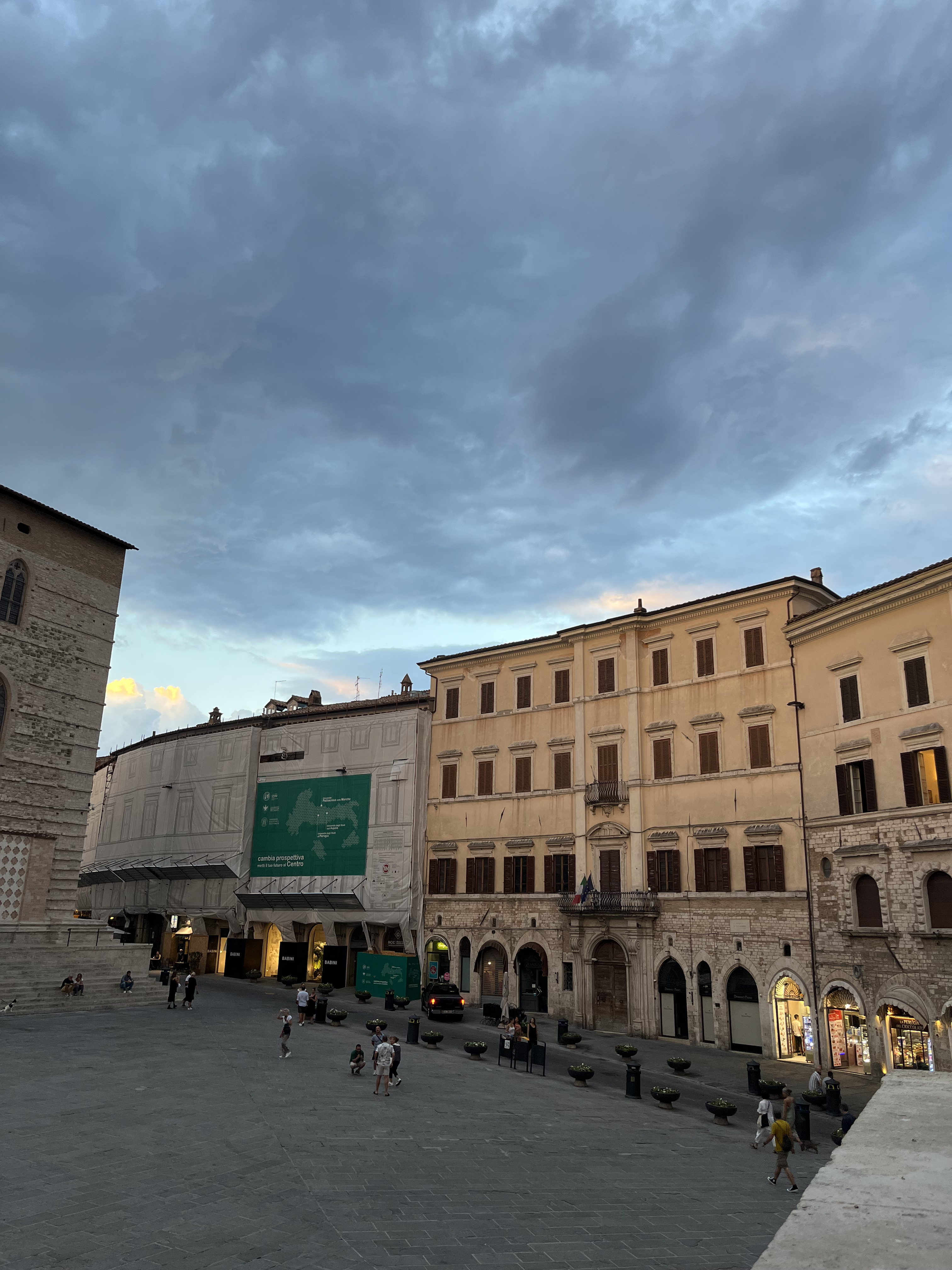
Clouds over the old Italian streets of Perugia.
Another impression that stuck with me long after the festival: no two performances of one piece are the same. Heck, the way I played Schumann’s Piano Concerto was worlds away from the way another student, a blond guy a few years older than me, played it. The tempos, dynamics, intonations—the overall energy shifted every time a different person played a piece. It made me reflect on what a piece is “supposed” to sound like.
There is this general consensus of what classical music should sound like, a consensus I’ve tried my entire musical career to find and subscribe to. But after over 13 years of trying, I still can’t tell you what that is, partially because the world of classical music is so vast and diverse that comparing each subcategory of classical piano repertoire—German Romantic era, French Impressionist era, Russian Contemporary era—with each other is like comparing English literature with math. They’re supposed to sound different, because the standards for what sounds good in those cultures and time periods differ so greatly.
Every musician brings something unique to the table. Even the performances full of mistakes taught me something: to have compassion for those who slip up and get distraught, and to practice in a way that secures that 100% of your performance is there with you on stage. 99% is not enough. Heck, prepare 150% so that 100% shows on stage.
| Prepare 150% so that 100% shows on stage.
When I was there, I felt insecure. At a baseline, I was already the nervous type, prone to performance anxiety, self-doubt and self-sabotaging (when you think you’ll make a mistake, you’re more likely to make one). The teachers of my masterclasses noticed my tendency to play shyly and robotically. Almost every single one pushed me to sing out more with my playing.
While I am grateful for their wisdom, I failed to implement their advice. As I attended more and more concerts, I watched people from around the world play beautiful renditions of pieces that moved me to tears or had me sitting on the edge of my seat. While their dedication and musicality inspired me, they also fed me a sense of “I will never be as good as them.”
Depressing, huh?
Paired with a sort of chronic weakness from not eating and sleeping properly throughout the festival’s duration, mental and physical fatigue weighed me down, keeping me from performing at my A game. I gained a valuable lesson: taking care of your body and mind is just as important as practicing your instrument in preparation for a performance. It’s similar to sports—all the drills, scrimmages, and hard work could go down the drain if you fail to rest properly the night before the big game.
One last takeaway I got was the importance of being open to making friends. I was lucky enough to make two friends in Perugia, both students participating in the festival as well. One of them performs charity concerts that got on TV news, and another recently finished her PhD. thesis on Baroque keyboard (i.e. harpsichord) music. Nowadays, we don’t talk as much, busy with our separate lives, but we occasionally chat over text or comment on each other’s social media posts. Even though they are no longer a big part of my life anymore, they made the festival warm and welcoming when it could have been cold and lonely.
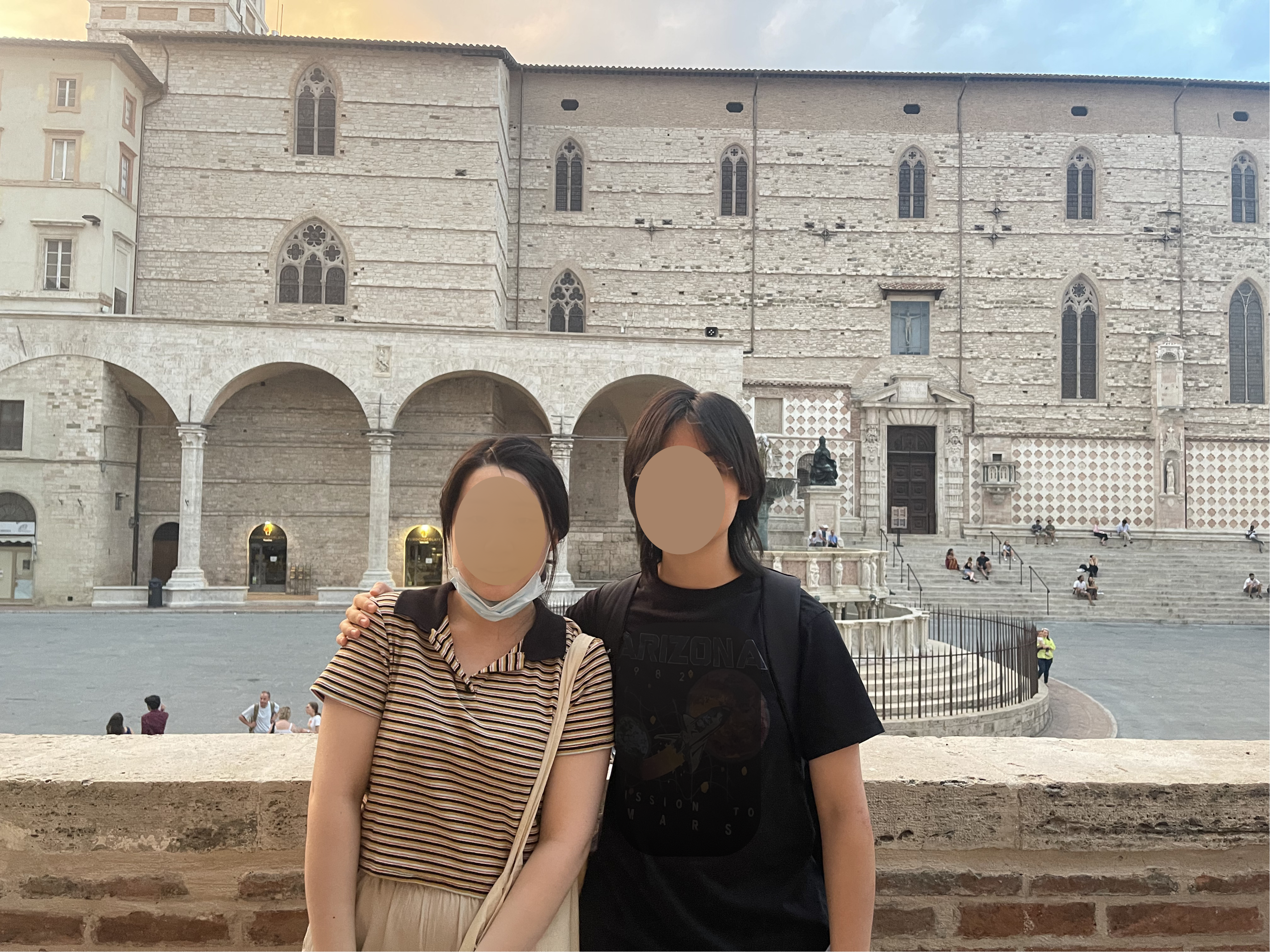
A friend and me, on the last day of Music Fest Perugia.
Today, sometimes when I am listening to classical piano recordings, the memories of Music Fest Perugia pop back in my mind. I’ll see memorable faces, hear striking performances, and feel the cool summer breeze mixing with the chatter of the city’s glimmering nightlife. I don’t spend as much time with the piano as I used to, which saddens me sometimes, but I know that I’ll always come back to it whenever the time is right, whether I’m home on vacation or have a bit of free time after work.
Piano was the first thing I ever wanted to get really good at, the first goal I was every truly ambitious about. It was never about winning competitions or impressing people; I played because I loved it, and I still play because I love it.
